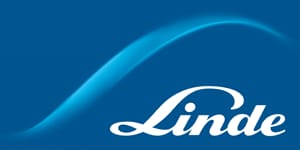Pour bénéficier d’un affichage optimal de la boutique en ligne de PanGas, vous avez besoin pour le navigateur de la version minimale suivante:
• Internet Explorer 9.0
• Mozilla Firefox 38
• Safari 8
• Chrome 45
Veuillez vous assurer que JavaScript est activé dans les paramètres de votre navigateur.
 Digitalizar e reordenar
Digitalizar e reordenar
Iniciar sessão, digitalizar o código de barras e encomendar produtos diretamente
Portal do cliente
 Links úteis
Links úteis
Linde Portugal - Compre gases técnicos online
Linde Gas Portugal
A Linde representa mais de 130 anos de progresso tecnológico. Graças a seu espírito inventivo, de curiosidade, perseverança e pensamento orientado para a qualidade, Carl von Linde construiu esta empresa. Em 1902, inventou a central de separação do ar, que permitiu à Linde fornecer gases a clientes em todo o mundo e expandir-se tornando-se o principal fornecedor de gás na Alemanha e na Europa. A Linde não só oferece as formas clássicas de fornecimento de gases em garrafas e depósito, como também fornece grandes consumidores através de instalações on-site.
Gases técnicos da Linde para uso diário.
Muitos processos de produção podem ser otimizados através da utilização eficiente de gases. Os gases técnicos são utilizados em todo o mundo, 24 horas por dia e em todos os sectores. Independentemente de estar ativo nas indústrias química, alimentar, metalúrgica ou de transformação, a Linde está sempre ao seu lado com um extenso portfólio de produtos para todas as necessidades. Todos os gases e misturas de gases fornecidos para aplicações em investigação e tecnologia consideram-se gases técnicos. Os mais comuns são o oxigénio, o azoto, o árgon, o dióxido de carbono, o hélio, o propano e o hidrogénio, assim como as respetivas misturas. Os gases de laboratório e os gases especiais também estão incluídos na categoria de gases técnicos, mas estes assumem um papel especial, uma vez que são colocados requisitos mais rigorosos na sua pureza, composição e rastreabilidade. Os gases técnicos da Linde são utilizados, nomeadamente, em processos metalúrgicos, indústrias químicas, indústria alimentar, proteção do meio ambiente, fabricação de vidro e componentes eletrónicos, construção, indústria farmacêutica e investigação e desenvolvimento.
Uma grande variedade de gases para soldadura e corte
Existe uma grande variedade de processos de soldadura que são muito diferentes. Por esta razão, foi essencial para a Linde Portugal puder fornecer os nossos gases e misturas utilizadas para as diversas técnicas de soldadura, disponíveis na Loja Online Linde Portugal. Para cada processo são necessários gases especiais de corte e soldadura. Os processos de soldadura mais comuns são a soldadura TIG, MIG y MAG. Estes processos de soldadura de arco geralmente requerem gases de proteção tais como árgon, o hélio ou as correspondentes misturas de gases. Seja na tecnologia clássica de soldadura, corte térmico, corte a laser, corte de plasma, vários processos de revestimento e muito mais, a nossa linha de produtos é utilizada numa ampla gama de aplicações. Os gases de soldadura e corte da Linde incluem CORGON®, CRONIGON®, VARIGON®, LASGON®, LASERMIX®. Os gases de apoio, azoto, hidrogénio, oxigénio, etileno, acetileno, metano, propano e gases propulsores nas suas várias purezas também satisfazem as elevadas exigências dos nossos clientes.
Gases técnicos para as maiores exigências e requisitos
A indústria alimentar contém grandes exigências com os gases utilizados como aditivos alimentares. A Linde cumpre em detalhe todos estes requisitos legais, de modo a ser incluído na categoria de gases de qualidade alimentar. Os grupos de produtos FRUTARGAS® e BIOGON® são misturas de gases especialmente desenvolvidas para esta área de aplicação. São também colocados requisitos particularmente elevados sobre os gases técnicos na indústria farmacêutica.
Botijas de gás para uso privado
Quer organize festas de barbecue ou aniversários – também garantimos eventos de sucesso com propano para barbecue e gases para balões.


